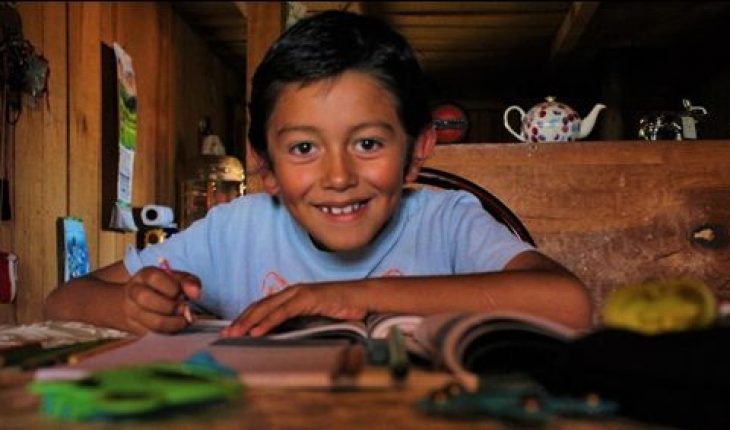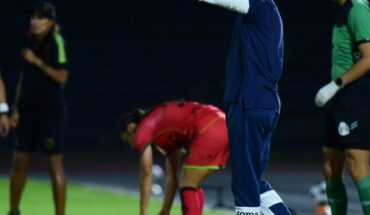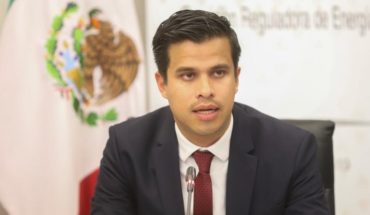Abraham Guadalupe is 8 years old and is in third grade at the May 5 school in Chilacayote, one of the largest rural communities in Cuautla, Jalisco, Mexico. Currently it goes through one of the most decisive stages of its education, however this year, through the COVID-19 pandemic, its learning has been limited.
In Chilacayote the internet signal is scarce, they only have two satellite internet antennas for the whole community, in addition, being in such a high and mountainous area the signal is interfered with too easily, which makes internet access complicated.
For this reason, it was impossible for Chilacayote public education institutions to enable online classes during the health contingency caused by COVID-19.
Read: UNICEF urges governments to reopen schools to avoid “lost generation of children”
This community’s primary has approximately 4 to 7 students per grade. Thanks to this number of students it was possible to enable face-to-face and individual counseling for each student, which are distributed one day a week in a period of forty minutes per student and grade.
These consultancies evaluate their progress and give them new material to work on in the week.
Abraham Guadalupe goes to school once a week, the day the teacher evaluates her learning and gives her more material to work at home; however it is difficult at your age to take responsibility for your tasks, and it is also difficult for your parents to help you solve doubts as there are many things that they do not understand either, according to their own testimonies.
Chilacayote’s parents mostly did not receive a higher or higher middle education, even 5.56% of the population is illiterate, according to official figures.
In this community there are 306 inhabitants, 147 men and 159 women. The main source of work is wood as there are two small sawmills, one of them already with more than 30 years in service. Then agriculture and livestock are followed, as all families sow and harvest their own maize, raise their own livestock and some families are also engaged in hen rearing.
It’s a very fertile land. Well, in addition to wood trees it also has fruit trees such as: apple trees, fig trees, peaches, tejocotes, plums, capulines, quinces and avocados.
The economy and the maintenance of the community are supported by ejido and relatives working abroad (United States, mainly).
In Chilacayote, as in many other small and medium-sized populations of Jalisco, people leave their homes in search of opportunities. Students leave their community in search of education or work. However, the limitations and shortcomings presented by the community are sufficient not to complete the projects, more so when it comes to educational issues and whether there is a pandemic in between that has limited efforts to educate its children and young people.
Read: Return to face-to-face classes will volunteer from January in states with yellow and green traffic lights: SEP
What is the life of a child or young person born and growing up in a marginalized population in Mexico and what are their opportunities?
In the case of Abraham Guadalupe, his parents agree that his son needs the help of his teachers in order to learn, even his teachers have noticed a setback in learning his students, with the so-called “new normalcy,” they say.
“Students at home have doubts about their homework and parents are not able to teach them“, said Elvira Díaz Estrada, the local primary school teacher.
If Abraham Guadalupe and his colleagues decide to continue their studies later they will attend the Community Telesecondary, which has a total of six students today.
They will receive an education which is limited to nurturing the material sent by state government to rural communities as there are no more books and the internet signal is skiza.
Finally, when they graduate from telesecondary if they decide to continue their studies, they must leave Chilacayote.
Leaving the community involves paying rent, paying for services, food, etc. This factor is a major limit for many families who do not have enough resources to send their sons or daughters to study outside the community.
In the case of Chilacayote university students cannot receive online education if there is no internet in their locality, the same goes for the rest of their students at the rest of the levels.
Abraham Guadalupe and his classmates are exposed to continuing in a system that does not allow them to follow(r) progressing, and with the COVID pandemic it has worsened, according to the parents and teachers of these children.
What we do at Animal Politics requires professional journalists, teamwork, dialogue with readers and something very important: independence. You can help us keep going. Be part of the team.
Subscribe to Animal Politics, receive benefits and support free journalism.#YoSoyAnimal
translated from Spanish: In rural schools, the new normalcy has led to an educational setback
December 9, 2020 |





